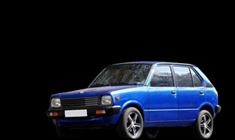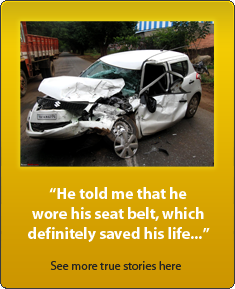News
VW to complete Porsche takeover;Piech triumphs in family feud
The Volkswagen (VW) Group Chief Executive Martin Winterkorn has announced that the long drawn out saga of its acquisition of Porsche AG will finally come to an end.
The VW Group is set to complete the takeover by August 1, 2012 by acquiring the remaining 50.1% stake of Porsche AG from its holding company, Porsche SE for 4.46 billion euros. That takes VW’s total outlay to about 8.4 billion euros. The Porsche AG includes the SUV and sports car units.
Earlier, in 2009 VW had acquired 49.9% stake for 3.9 billion euros. However, a series of legal and tax problems kept the deal from going through until 2014. But now that this historic deal has gone through, both parties will be pleased to benefit from cost savings, earlier than expected.
But perhaps one person will be more pleased than anybody else; the 75-year old VW Chairman Ferdinand Piëch, whose own personal rivalries with his cousins has been entrenched in the VW-Porsche saga for years.
The Porsche family
It all began with Ferdinand Porsche, the brilliant Austrian-German auto engineer and pioneer famed for creating VW Beetle and establishing the Porsche brand. He was the patriarch of the Porsche-Piëch families whose bitter feud would go on change the landscape of the German auto industry.
Ferdinand Porsche had two children - a son, Ferry and a daughter, Louise. Ferry’s children attained the Porsche surname while Louise’s children got her husband’s surname Piëch.
The feud began in the early 70s with Louise’s son Ferdinand Piëch on one side and with Ferry’s sons Ferdinand Alexander, Wolfgang and the remaining Porsche brothers on the other. The cousins had worked in harmony at one point for the Porsche Company. But personal and professional rivalries took over and soon the cousins were locked in conflict so strong, the entire family met and decided that nobody from the family would actively work in Porsche but remain silent partners instead.
Piëch vs. Porsche
This opened the door for Ferdinand Piëch to join Audi, a company whose fortunes he turned around on his way to the chairmanship of the VW Group in the 90s. Despite numerous squabbles with the Porsche family and failed marriages, his professional life took off as he helped VW grow into Europe’s biggest auto manufacturer while acquiring major companies like Lamborghini and Bentley on the way.
Meanwhile, the 90s also saw Porsche enter a crisis as its main market, the US, went through economic difficulties. In 1993 Wendelin Wiedeking was promoted as the CEO. A previously unknown executive, Wiedeking revived Porsche but was criticised for using controversial methods and for being violent to his employees.
Porsche attempts takeover
In fact it was Wiedeking who initiated the shocking bid to take over the VW Group in 2005, with Porsche chairman Wolfgang Porsche. By 2008, they had borrowed enough funds to increase their stake in the VW Group to 75%.
Their last obstacle was the controversial “Volkswagen Law”, under which any shareholder in VW could not exercise more than 20% of voting rights, even if their stake in the firm was bigger. However the European Court of Justice ruled against the law clearing the way for Porsche.
Volkswagen’s comeback
At this time, Ferdinand Piëch wasn’t as influential as he used to be. But he was still able to engineer a move that moved the balance of power in VW’s favour. As reported in the German weekly Der Spiegel, Piëch made a strong ally in Christian Wulff. He was the governor of the German state of Lower Saxony who part owned the VW Group and had permanent veto power in company matters. Piëch realised that using this veto was the only way to ward off Porsche’s hostile takeover bid. It was Wulff then, who convinced Chancellor Angela Merkel to ensure that Lower Saxony kept its veto power, no matter what happened to the VW Law. And it worked.
With one battle won, Ferdinand Piëch ensured that Porsche’s influence on the VW board decreased. Porsche were further hit by the global financial crisis. The failed takeover piled up debts of over 10 billion euros. CEO Wiedeking was soon axed and Porsche opted for a merger.
However Piëch rejected the merger on grounds that Porsche were weighed down by huge debts and lawsuits by investors. He instead crossed his cousin, Porsche chairman Wolfgang, by leading the takeover of the sport car manufacturer by the VW Group.
The takeover
However, the complete takeover was postponed, firstly due to the huge lawsuits against Porsche by hedge funds that had invested in them. VW resolved this issue by agreeing to buy only Porsche AG and not its holding company Porsche SE, who will have to deal with the lawsuits.
There was also the matter of a possible 1.5 billion in taxes for VW if the deal went through before August 2014 due to the deal being bracketed as “takeover” under German tax laws. However, the deal will now go through two years earlier than planned due to a loophole in the law, whereby, a single share included in the payment to Porsche SE, would bracket the deal as “restructuring” and not “takeover”.
Expectations
The VW Group sees this acquisition as a big step forward in its aim to become the world’s leading car manufacturer by 2018. To this end, it intends to sell 10 million vehicles annually. The current world leader in auto manufacturing is Toyota followed by GM and VW.
This deal will also fit in nicely with VW’s current expansion strategy in the US, one of the few markets it has failed to impress. VW will hope to exploit Porsche’s strong presence in the US. It also opened a factory in Tennessee last year and is adding an Audi plant in Mexico.
How much value will Porsche add?
Reuters reported that the Porsche deal will lift VW’s earnings by 6% next year and boost their full year earnings by more than 9 billion euros. Porsche is one of the most profitable car manufacturers in the world with global sales 20% above their previous best and it has an impressive profit margin of 18%.





.jpg)








.jpg)



